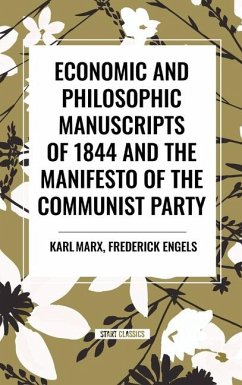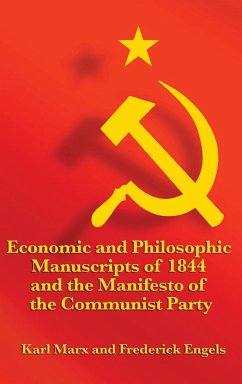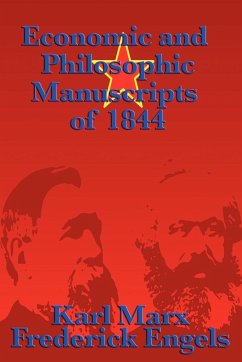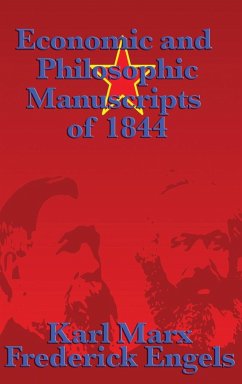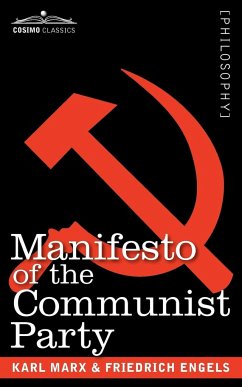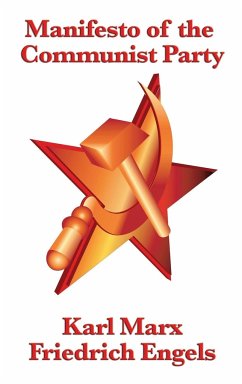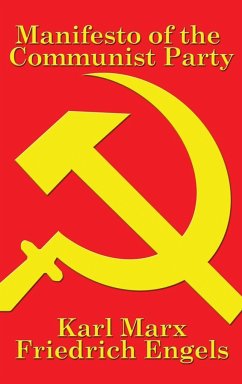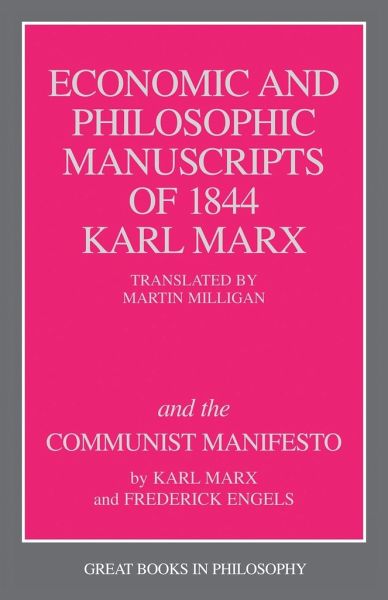
The Economic and Philosophic Manuscripts of 1844 and the Communist Manifesto
Versandkostenfrei!
Versandfertig in 1-2 Wochen
13,99 €
inkl. MwSt.

PAYBACK Punkte
7 °P sammeln!
Communism as a political movement attained global importance after the Bolsheviks toppled the Russian Czar in 1917. After that time the works of Karl Marx and Frederick Engels, especially the influential Communist Manifesto (1848), enjoyed an international audience. The world was to learn a new political vocabulary peppered with "socialism," "capitalism," "the working class," "the bourgeoisie," "labor theory of value," "alienation," "economic determinism," "dialectical materialism," and "historical materialism." Marx's economic analysis of history has been a powerful legacy, the effects of whi...
Communism as a political movement attained global importance after the Bolsheviks toppled the Russian Czar in 1917. After that time the works of Karl Marx and Frederick Engels, especially the influential Communist Manifesto (1848), enjoyed an international audience. The world was to learn a new political vocabulary peppered with "socialism," "capitalism," "the working class," "the bourgeoisie," "labor theory of value," "alienation," "economic determinism," "dialectical materialism," and "historical materialism." Marx's economic analysis of history has been a powerful legacy, the effects of which continue to be felt world-wide. Serving as the foundation for Marx's indictment of capitalism is his extraordinary work titled Economic and Philosophic Manuscripts, written in 1844 but published nearly a century later. Here Marx offers his theory of human nature and an analysis of emerging capitalism's degenerative impact on man's sense of self and his creative potential. What is man's true nature? How did capitalism gain such a foothold on Western society? What is alienation and how does it threaten to undermine the proletariat? These and other vital questions are addressed as the youthful Marx sets forth his first detailed assessment of the human condition.






